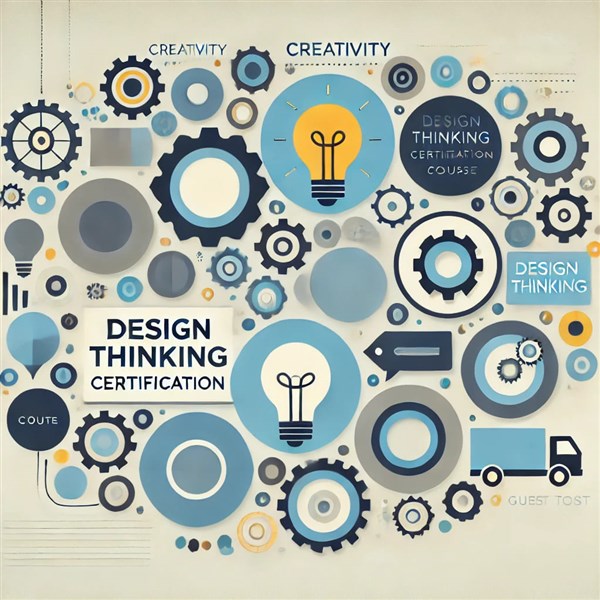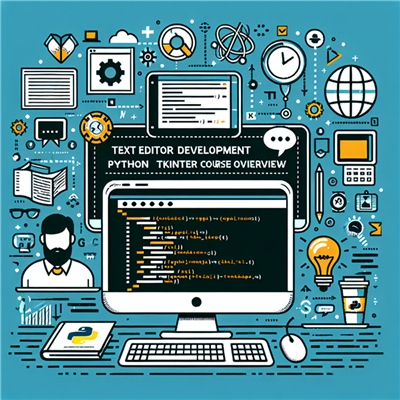
In an ever-evolving job market, standing out as a professional can be a daunting challenge. As companies prioritize innovation and customer-centric solutions, the need for design thinking skills has surged dramatically. A design thinking certification offers a unique opportunity to acquire and demonstrate these essential skills, making you a more attractive candidate in various industries. This blog explores how obtaining a design thinking certification can significantly enhance your professional skills and career opportunities.
Understanding Design Thinking
Design thinking is a problem-solving approach that emphasizes empathy, creativity, and collaboration. It encourages individuals and teams to understand user needs, challenge assumptions, and generate innovative solutions. The design thinking process typically follows five stages: Empathize, Define, Ideate, Prototype, and Test. By engaging in these stages, professionals can develop a more profound understanding of user experiences and create products or services that truly resonate with their target audience.
The Increasing Demand for Design Thinking Skills
Organizations across various sectors, from technology and healthcare to education and finance, are increasingly adopting design thinking principles. Companies like Apple, Google, and Airbnb have leveraged design thinking to create products that revolutionize user experiences. As a result, there is a growing demand for professionals equipped with design thinking skills to foster innovation and drive success.
How Design Thinking Certification Enhances Professional Skills
1. Empathy and User-Centric Thinking
One of the core tenets of design thinking is empathy. A design thinking certification program teaches you how to put yourself in the shoes of the user, understand their pain points, and identify their needs. This user-centric approach is crucial in today’s business landscape, where customer satisfaction and user experience play significant roles in success.
By obtaining a design thinking certification, you learn to conduct user research effectively, analyze qualitative data, and develop personas that inform your design decisions. These skills enhance your ability to create products and services that resonate with users, making you a valuable asset to any organization.
2. Creative Problem-Solving Skills
Design thinking encourages creative problem-solving through brainstorming and ideation sessions. Certification programs often include exercises that challenge participants to think outside the box and generate multiple solutions to a problem. This skill is increasingly important in a competitive job market, where employers value candidates who can approach challenges creatively.
The ability to generate innovative ideas and solutions sets you apart from your peers. It also prepares you to lead brainstorming sessions and workshops, enabling you to foster a culture of creativity and collaboration within your team.
3. Collaboration and Teamwork
Design thinking is inherently collaborative. Certification programs often emphasize the importance of teamwork, as many design thinking activities require input from diverse perspectives. You learn how to facilitate group discussions, encourage participation from all team members, and synthesize different viewpoints to arrive at a consensus.
Strong collaboration skills are essential in today’s work environment, where cross-functional teams are common. By becoming adept at working with others, you enhance your leadership potential and ability to navigate complex group dynamics.
4. Prototyping and Iteration
The prototyping phase of the design thinking process involves creating tangible representations of ideas to test and validate concepts. A design thinking certification teaches you how to create low-fidelity prototypes, conduct user testing, and iterate based on feedback. This hands-on experience helps you develop a mindset of experimentation and continuous improvement.
Prototyping skills are valuable in various fields, including product design, software development, and marketing. Employers appreciate candidates who can quickly prototype and test ideas, reducing time-to-market and increasing the likelihood of success.
5. Strategic Thinking and Business Acumen
While design thinking focuses on user experience, it also requires a strategic mindset. Certification programs often explore how design thinking aligns with business goals and objectives. You learn to evaluate market opportunities, assess competitive landscapes, and align design initiatives with organizational strategies.
This strategic perspective enhances your business acumen, making you a more well-rounded professional. Employers seek individuals who can bridge the gap between creativity and business strategy, and a design thinking certification equips you with this valuable skill set.
Career Opportunities with a Design Thinking Certification
1. Product Manager
As a product manager, you are responsible for guiding the development of products from conception to launch. A design thinking certification enables you to understand user needs deeply, collaborate with cross-functional teams, and drive innovation throughout the product development process.
2. UX/UI Designer
User experience (UX) and user interface (UI) designers focus on creating engaging and intuitive digital experiences. Design thinking skills are crucial in understanding user behavior, conducting usability testing, and iterating on designs based on user feedback. A certification can set you apart in this competitive field.
3. Innovation Consultant
Organizations increasingly seek innovation consultants to help them implement design thinking practices. With a design thinking certification, you can offer valuable insights and guidance to organizations looking to foster a culture of innovation and creativity.
4. Marketing Specialist
In marketing, understanding the target audience is vital for creating effective campaigns. Design thinking skills can help you empathize with customers, develop compelling messaging, and design user-centered marketing strategies that drive engagement and conversion.
5. Business Analyst
Business analysts play a key role in identifying opportunities for improvement within organizations. A design thinking certification can enhance your ability to analyze user needs, evaluate business processes, and propose innovative solutions that drive efficiency and effectiveness.
The Future of Work: Design Thinking as a Core Competency
As industries continue to evolve, the demand for design thinking skills is expected to grow. Organizations will increasingly rely on professionals who can navigate ambiguity, embrace change, and lead teams through the design thinking process. Obtaining a design thinking certification not only enhances your current skill set but also positions you as a forward-thinking professional ready to tackle the challenges of the future.
Conclusion
In a world where innovation is key to success, obtaining a design thinking certification can be a game-changer for your career. By enhancing your empathy, problem-solving abilities, collaboration skills, prototyping techniques, and strategic thinking, you become a more valuable asset to any organization. Whether you are looking to advance in your current role or explore new career opportunities, a design thinking certification can open doors and set you on a path toward success. Embrace the power of design thinking and unlock your potential today!
A design thinking certification is more than just a certificate. It is a testament to your ability to innovate and solve problems, making you an asset to any organization. Koenig Solutions, a leading IT training company, provides this and other top technology courses, helping you stay ahead in your career.







COMMENT